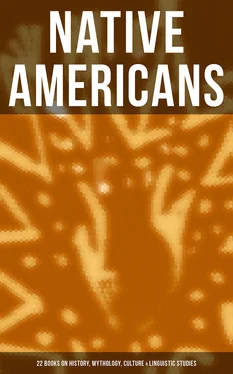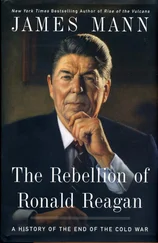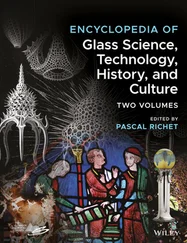Factional hostility among the Cherokees. —The only tribe with whom the commissioners were unsuccessful in re-establishing friendly relations between these factions was the Cherokees. 586
The ancient feuds between the Ross and Ridge parties were still remembered. Many of the latter who had remained under Stand Watie in the service of the Confederacy until the close of the war were yet debarred from returning to their old homes, and were living in great destitution on the banks of the Red River. 587When the Ross party had returned to their allegiance, in 1863, their national council had passed an act of confiscation 587against the Watie faction, which had been enforced with the utmost rigor, so that some five or six thousand members of the tribe had been rendered houseless, homeless, and vagabonds upon the face of the earth. All prospect of securing a reconciliation between these parties was for the time being abandoned by the commissioners, and the proposition was seriously considered of securing a home for Watie and his followers among the Choctaws or Chickasaws. 588
John Ross not recognized as principal chief. —On the day 589on which the draft of the proposed preliminary treaty was presented to the council by the commissioners John Ross arrived in the camp of the Cherokees. It had already been determined by the commissioners among themselves that his record had been such as to preclude his recognition by them as principal chief of that nation, and it was believed that his influence was being used to prevent the loyal Cherokees from coming to any amicable arrangement with their Southern brethren.
The chairman therefore read to the council 590a paper signed by the several commissioners, reciting the machinations and deceptions of John Ross. It was alleged that he did not represent the will and wishes of the loyal Cherokees, and was not the choice of any considerable portion of the nation for the office claimed by him, an office which by the Cherokee law the commissioners believed he did not in fact hold. They therefore refused, as commissioners representing the interests of the United States, to recognize Ross in any manner as the chief of the Cherokee Nation.
Loyal Cherokees will sign treaty conditionally. —At the same sitting of the council, Colonel Reese, of the loyal Cherokee delegation, declared that they were willing to sign the proposed treaty, but in so doing would not acknowledge that they had forfeited their rights and privileges to annuities and lands as set forth in the preamble, but that their signatures must be made under the following statement, viz: "We, the loyal delegation, acknowledge the execution of the treaty of October 7, 1861, but we solemnly declare that the execution was procured by the coercion of the rebel army."
Southern Cherokees will sign treaty conditionally. —On the following day 591the credentials of the Southern Cherokees were presented by E. C. Boudinot, accompanied by the statement that they cordially acceded to the 1st, 2d, 4th, 5th, and 7th propositions of the commissioners without qualification; that they accepted the abolition of slavery as an accomplished fact, and were willing to give such fact legal significance by appropriate acts of council. They insisted, however, that it would neither be for the benefit of the emancipated negro nor for that of the Indian to incorporate the former into the tribe on an equal footing with its original members. They were also opposed to the policy of consolidating all the tribes in the Indian Territory under one government, because of the many incongruous and irreconcilable elements which no power could bring into a semblance of assimilation. 592
Southern Cherokees want a division of territory. —They had already proffered and were willing again to proffer the olive-branch of peace and reconciliation to their brethren of the so called loyal portion of the nation, but respectfully urged that after all the blood that had been shed and the intense bitterness that seemed to fill the bosoms of their brethren they ought not to be expected to live in an undivided country. They wished peace, and they believed they could have it in no other way than by an equitable division of the Cherokee country in such manner as should seem most appropriate to the United States.
Statement by John Ross. —The delegation of loyal Cherokees at the next session of the council 593presented their exceptions to the action of the commissioners in declining to recognize John Ross and that gentleman was permitted to make a statement in his own behalf. The constantly accumulating evidence against him was such, however, as to more fully confirm the commissioners in the propriety of their previous action.
On the 21st of September the council adjourned, to meet again at the call of the Secretary of the Interior.
Conference at Washington, D. C.
Table of Contents
Early in 1866, in accordance with the understanding had at the adjournment of the Fort Smith council, delegations representing both factions of the Cherokees proceeded to Washington for the purpose of concluding some definite articles of agreement with the United States. They were represented by eminent counsel in the persons of General Thomas Ewing for the loyal and Hon. D. W. Voorhees for the Southern element. Many joint interviews and discussions were held in the presence of Commissioners Cooley, Parker, and Sells, but without any hopeful results. The bitterness exhibited in these discussions upon both sides gave but little promise that enmities of more than twenty years' standing could be subordinated to the demands of a peaceful and harmonious government. The Southern element, which numbered about sixty-five hundred, constituted but a minority of the whole nation. These, with the exception of perhaps two hundred, were still living in banishment among the Choctaws and Chickasaws, and felt it would be unsafe to return to their old homes with the Ross party in full possession of the machinery of government and ready to apply with severest rigor the enginery of their confiscation law. Their representatives were therefore instructed to demand, as the only hope for their future peace and happiness, a division of the Cherokee lands and funds in proportion to their numbers between the two contending parties. 594On the other hand, the representatives of the Ross or loyal party insisted that there was no good reason existing why the Southern element should be unable to dwell harmoniously with them in the same country and under the same laws, which they asserted always had been and always would be impartially and justly administered, so far as they were concerned.
A just feeling of national pride would always forbid their consent to any scheme against the integrity and unity of the whole Cherokee Nation. But, while they were thus on principle compelled to antagonize the demand of the Southern faction, yet if that element felt the impossibility of living comfortably in the midst of their loyal brethren the latter were willing that the portion of their national domain known as the Canadian district should be devoted to their sole occupation and settlement for a period of two years or until the President of the United States should deem it inadvisable to longer continue such exclusiveness. 595To this again the Southern Cherokees refused assent, because of the insufficient area of the Canadian district, and because they were unwilling to trust themselves under the jurisdiction of their enemies' laws and courts.
Factious conduct of both parties. —Each faction was desirous of making a treaty with the Government, and each was fearful lest the United States should recognize the other as the proper party with which to conclude that treaty. The United States officials were convinced that the Ross party represented the rightfully constituted authorities of the nation, and their delegates were thus the only really authorized persons with whom a treaty could with strict propriety be made. But they were also convinced that it would be highly improper to conclude any treaty which should leave the Southern Cherokees in any degree subject to the malice and revengeful disposition of their enemies. It was the desire of the United States to secure from the Cherokees a cession of sufficient land upon which to colonize the Indian tribes then resident in Kansas. The Southern party therefore agreed to cede for that purpose all of the Cherokee domain west of 96° west longitude, and to sell the "neutral land" for the sum of $500,000, provided the Government would treat with them. The loyal party, however, refused to cede any territory for purposes of colonization east of 97° west longitude, and demanded $1,000,000 for the "neutral land," at the same time assuming that the United States had no right or authority to entertain any proposition from any other source whatever involving the disposition of the domain or funds of the Cherokee Nation. 596
Читать дальше












